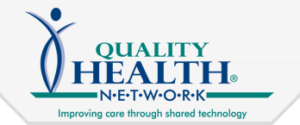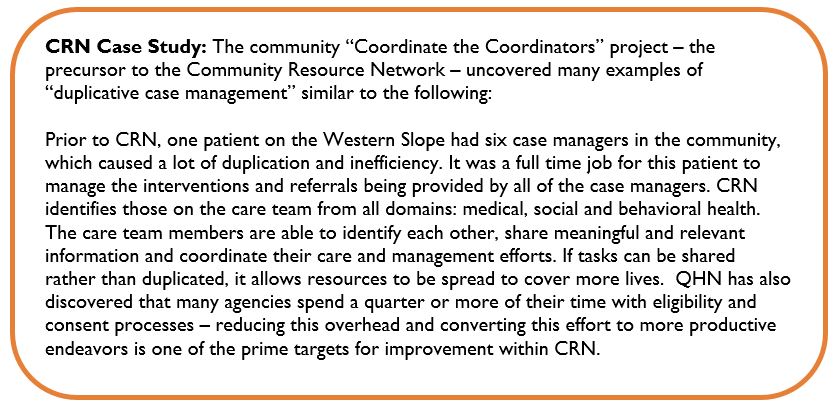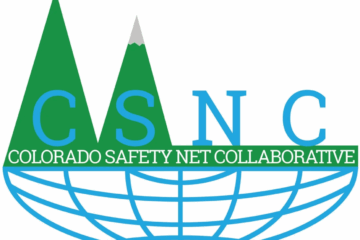PROFILE: Community Resource Network
![]() Click here to listen to the Change Agent Chat featuring QHN.
Click here to listen to the Change Agent Chat featuring QHN.
 Quality Health Network (QHN) is a non-profit quality improvement collaborative that operates the Health Information Exchange (HIE) on Colorado’s Western Slope. Their mission is to facilitate the availability of information to optimize the health of communities, improve economic efficiencies of patient care, and bring value to stakeholders.
Quality Health Network (QHN) is a non-profit quality improvement collaborative that operates the Health Information Exchange (HIE) on Colorado’s Western Slope. Their mission is to facilitate the availability of information to optimize the health of communities, improve economic efficiencies of patient care, and bring value to stakeholders.
QHN ‘s longstanding Health Information Exchange services include clinical and claims data collection, data surveillance and alerting, data delivery, population health management tools, and data analytics. More than 85% of health care provider organizations in QHN’s 40,000 square mile service area are actively participating in the network. QHN’s technical infrastructure and personnel support leading edge local, state, and federal initiatives and users enjoy access to applications, which support community-wide care coordination, care management, risk stratification, and predictive modeling.
Project Summary: The newly launched Community Resource Network (CRN) is the Social Information Exchange complement to QHN’s HIE and takes that shared technology platform to the next level. It incorporates social, medical, and behavioral elements of health in order to provide a more robust picture of the many factors that influence an individual’s overall wellness. A care coordination and close-the-loop referral initiative, coupled with a social information exchange, CRN is designed to integrate interventions for individuals by allowing providers to work in concert across the domains of health care, behavioral health, and social determinants of health. At its core, CRN helps identify those persons in need, helps identify those able to provide the necessary services, and facilitates communication on what is being done or has been done to fill the need.
Although QHN has a great deal of experience in solving problems regarding privacy and security, data use, consent, and connecting disparate systems together, launching CRN requires linking more than three times as many agencies (compared to the health care space) within a short period of time. With this many players, agreeing upon a common vision and agreeing upon something as simple as agreeing to differences in lexicon is a victory!
Benefit to Colorado: Though still it the pre-implementation phase, CRN is already changing the way stakeholders on the Western Slope work and is connecting what used to be silos of services to better help those in need. Disparate members of the community are coming together, are working better together, and have created their own common vision – including accountability – around whole-person wellness. The collaborative community network is already better “alerted” – in some cases in real time – as to important events or changes in status of an individual or their needs, and who may be working on fulfilling identified needs.
Executive Director of QHN, Dick Thompson, notes “connecting with the social service agencies has been more rewarding than expected. There is a large, mostly under the radar, infrastructure supporting the community we serve and they have not been supported to transform their work. We think the CRN can be a creative solution to solve some of their issues including silos of communication and duplicating of services. The social services community as a whole is an engaged partner in this work, and we look forward to the increased collaboration amongst the stakeholders. This is more than a technology project, this is a community coming together and creating solutions.”


